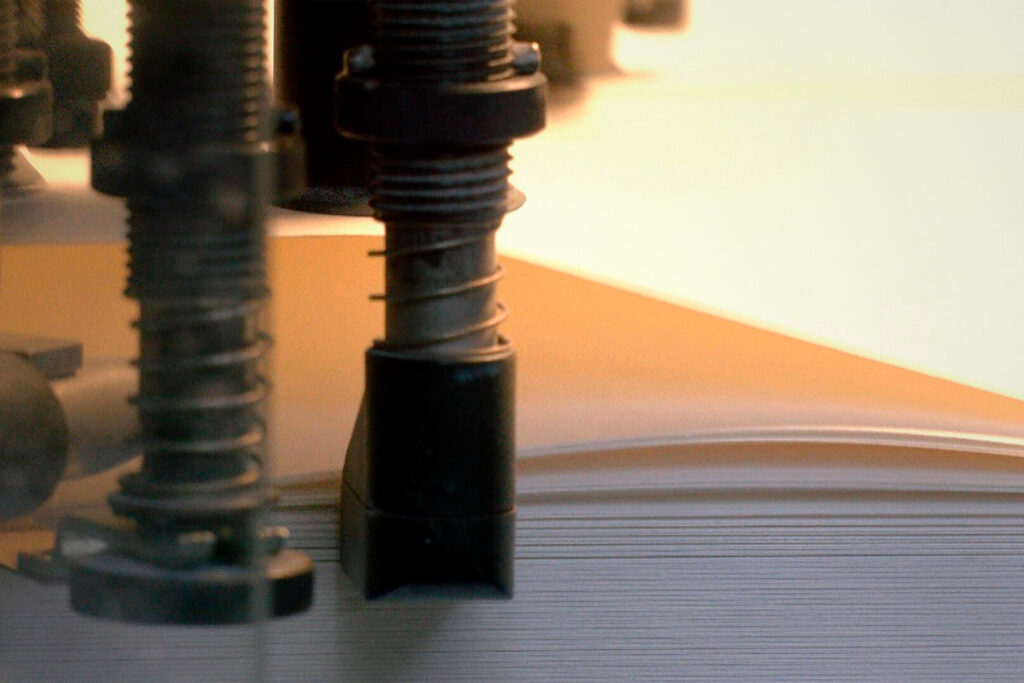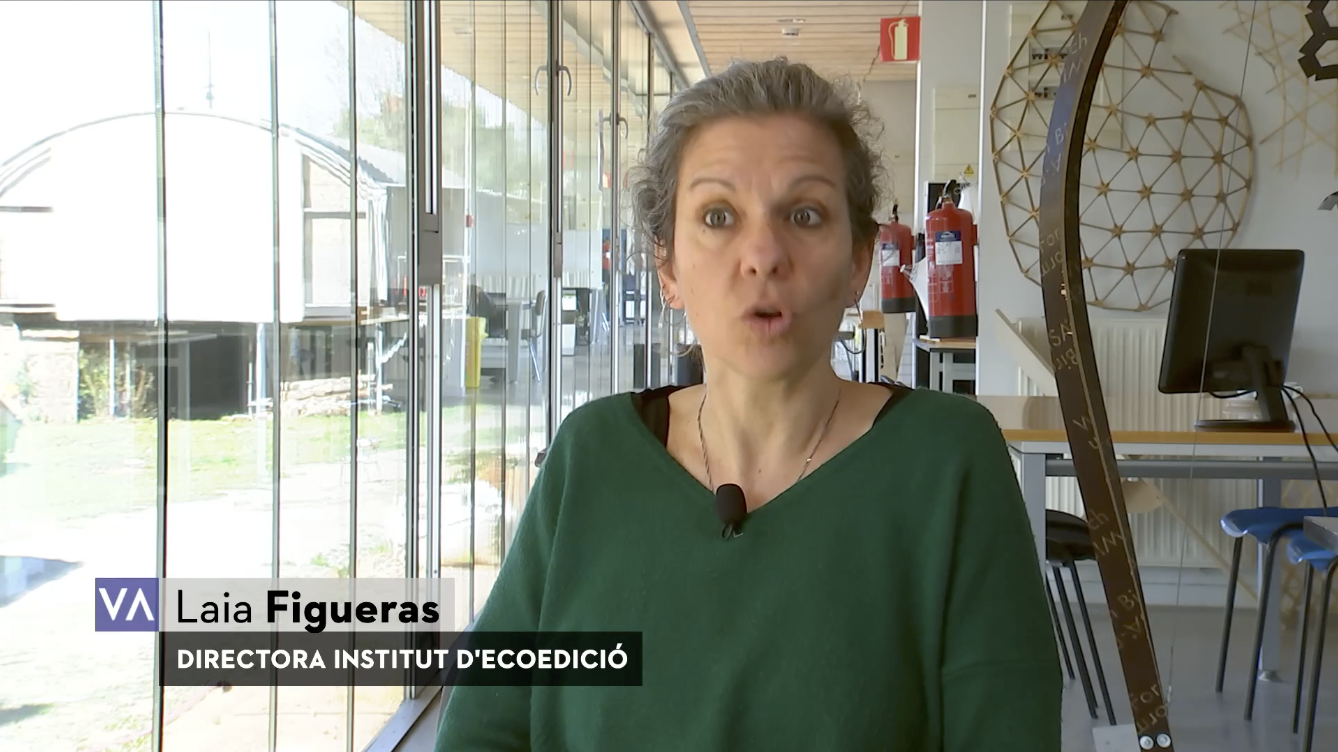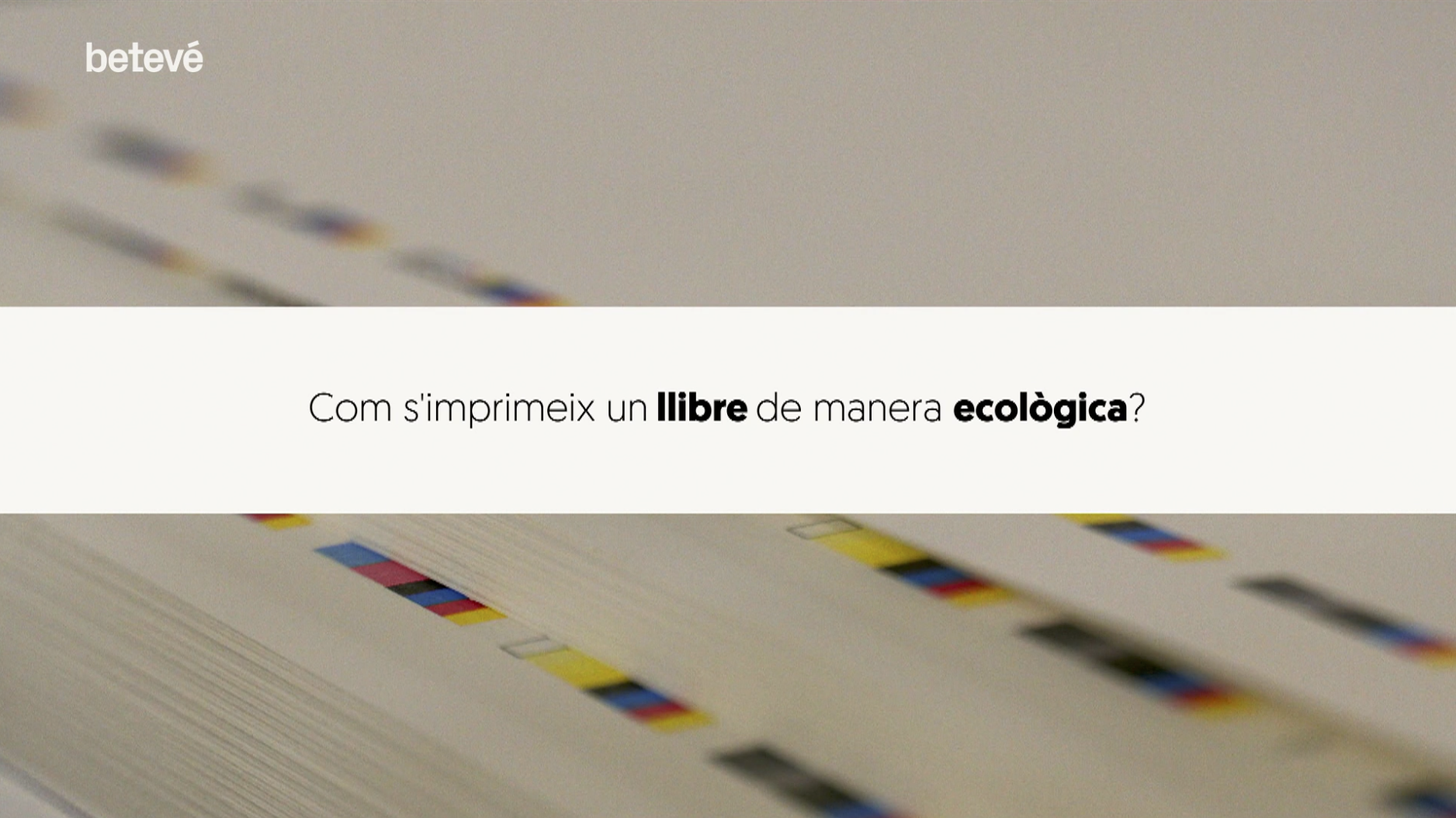30 May Eco-publishing: Towards a More Sustainable Publishing Industry
In an increasingly sustainability-conscious world, eco-publishing emerges as an innovative solution to reduce the environmental impact of Catalonia’s publishing sector. At Agpograf, we collaborate with the Institute of Eco-publishing and commit to this trend, working to minimize our ecological footprint and promote sustainable practices. But what exactly is eco-publishing and how is it changing the way books are produced?
According to the recent report by Valor Afegit (TV3), “The ecological footprint of a book: the publishing industry is moving towards sustainability”, book production has a significant impact on the environment. From tree felling to the printing and distribution process, every stage of a book’s life cycle consumes resources and generates emissions, totaling 476 grams of CO₂ per average book.
Therefore, the publishing industry is taking measures to reduce this impact, such as using recycled paper, eco-friendly inks, and more energy-efficient printing processes. At the same time, sustainable production also involves working with local printers, as proximity is key to reducing emissions: 16% of the environmental impact of book production is due to transportation.
In the same vein, Betevé highlighted in the Plaça Tísner program the eco-publishing initiative, explaining how some publishers and printers are implementing sustainable practices to reduce their ecological footprint. A prime example is Editorial Akiara Books, with whom Agpograf shares numerous collaborations. Akiara Books produces ecologically and 100% locally, proving that it is possible to publish high-quality books with minimal environmental impact.
At Agpograf Impressors, we firmly believe in the importance of adopting sustainable practices. Therefore, we choose papers with low environmental impact: recycled papers or those with FSC or PEFC certifications; we use vegetable-based inks or Cradle to Cradle inks; and we optimize our processes to minimize energy and water consumption. We also strive to work within a local ecosystem, with Km 0 collaborators, to reduce emissions in transportation and enhance the local network.
Eco-publishing is not only a response to customer demands prioritizing environmental preservation but also represents a commitment to the future of our planet. Through innovation and collaboration, we can propel the book industry towards a more sustainable production model.
References:
- “The ecological footprint of a book: the publishing industry is moving towards sustainability” – Valor Afegit, TV3.
- “Eco-publishing, a rising trend among Catalan publishers” – Plaça Tísner, Betevé.




